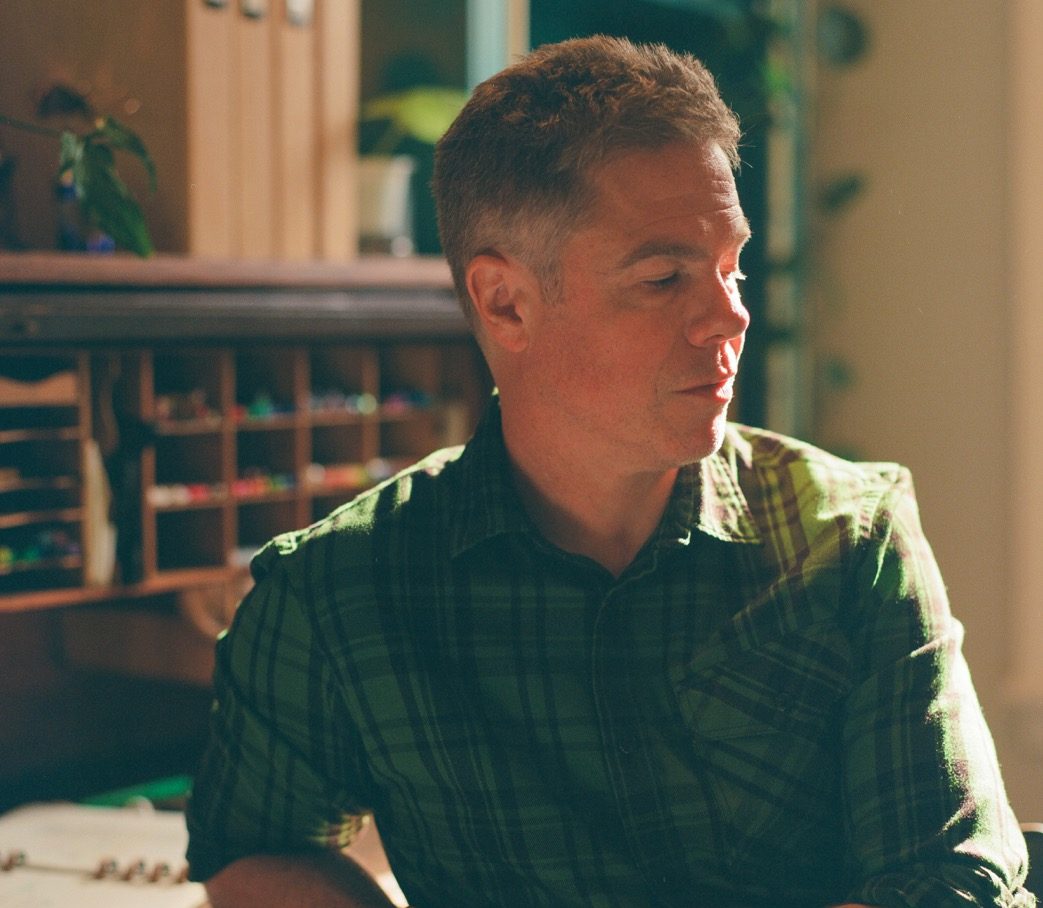It’s a sunny day in Amsterdam when Josh Ritter checks in with C-VILLE, taking a phone call while sitting along one of the city’s many canals. When reached in early April, the Americana tunesmith was on a solo tour in Europe, the country where he first found success, playing with the likes of Joan Baez and Glen Hansard in the early 2000s.
A restless creative, Ritter juggles his prolific musical output with painting and work as a best-selling novelist (his latest book, The Great Glorious Goddamn of It All, came out in 2021), but right now he’s focused on his new album. Spectral Lines. Released on April 28, Ritter’s 11th studio effort finds the poetic lyricist in a deeply reflective state, in songs that first took shape while the singer-songwriter was dealing with the loss of his mother and the uncertainty of early pandemic isolation.
But throughout the album’s 10 tracks, Ritter channels emotional turmoil into an empathetic look at the universal aspects of loneliness and existential uncertainty, and the accompanying music perfectly sets the mood. Working with producer Sam Kassirer, Ritter shapes the songs around celestial piano fills and waves of synth, resulting in atmospheric, free-flowing arrangements that move beyond the roots-based leanings of his earlier work. He’ll perform at the Jefferson on Tuesday, May 9.
C-VILLE: You asked fans to cover your new song “Honey, I Do” before they heard it, giving them the lyrics and basic sheet music, and then asking them to post videos of their interpretations. How did you come up with this unique idea?
Josh Ritter: I personally think when you have a verse you should be able to write it down and have it leap off the page. So I was interested in seeing what people could do with it, and I was blown away. People interpreted it in so many ways, but at the heart of it, it was just for fun.
Heartbreak is something we all feel to a certain degree at some points in our lives, and as a thesis for the whole record I was trying to share how I feel sometimes. I was reaching outwards and starting a conversation and also making a statement that in many ways we’re all the same.
Sonically, Spectral Lines has a mellow, atmospheric mood, with many songs flowing together. How did this musical direction take shape?
This record came together far differently than any other I’ve done. The seed was planted during the early days of the pandemic, so I didn’t know how we were going to record the songs. I wrote [fourth track] “For Your Soul” when I was back home in Idaho while my mom was dying, and at the time I had no way to get into a studio. I started to share the ideas with Sam Kassirer, who I hadn’t worked with as a producer in over 10 years. I knew he would be the only one who would get them, so in his hands they started to take shape.
We decided to work on small batches of songs and create them in a certain style. I wanted them to flow together like a walk down the hallway of my mind at that time. And I wanted to create something that represented that there had been a change in peoples’ lives.
How do you balance different areas of creativity—music, painting, writing prose?
Day to day, it’s what you can do with little chunks of time. When I’m home I’ll paint for a couple hours while the kids are at school, or I’ll write for 15 minutes. Then if I get deeper with an album or a novel, collaborators come in or I go where the work leads me. But those short times during the day are fun and really make me happy.
You worked with the Grateful Dead’s Bob Weir on his solo album Blue Mountain. What did you take away from that experience?
He’s a truly generous artist and an inspiration. I got a chance to send him what I consider some cowboy songs that I had written, and he was really receptive. When I was working on those, I was imagining him in a Western movie. He was a kindred spirit in doing what he wants to do and following his wanderlust.
You’re releasing your 11th album dating back to 1999. How has songwriting changed for you in the past decade-plus?
Writing of any kind is hard to discern. You just put things down and move on. I can’t describe it from my own angle. I just know I feel an electricity and love writing. I’ve felt that way ever since I was 16 or 17 and realized I could share my own stories and play guitar and sing what I actually felt. That still remains the most profound experience.
